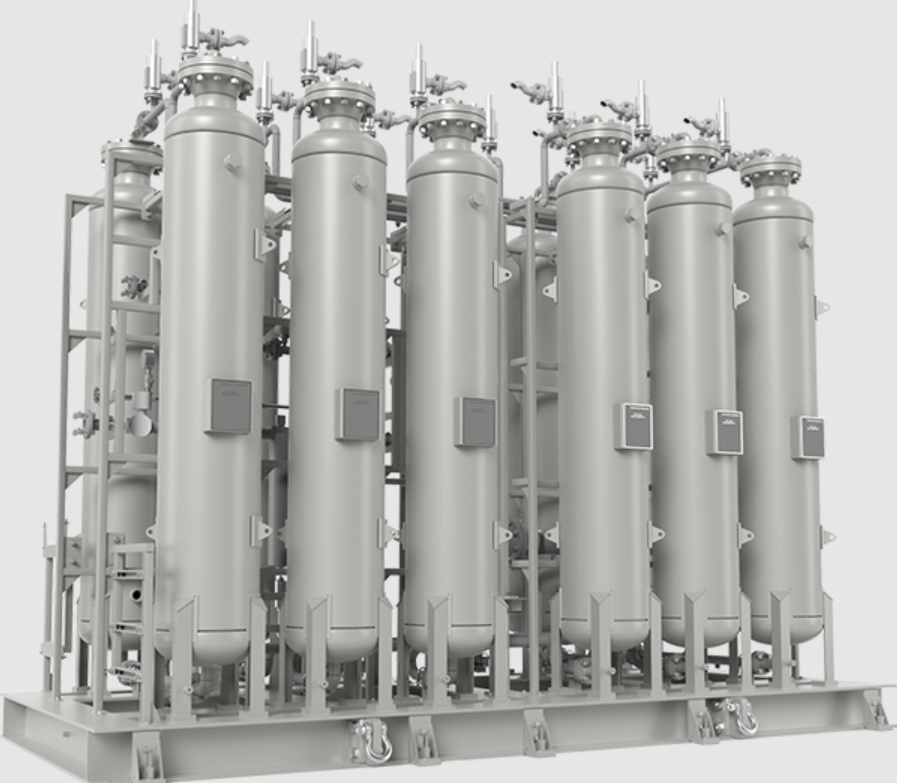Greenlane Renewables Makes Landfill Gas Pipeline-Ready and Profitable
By Maddy McCarty, P&GJ Digital Editor
Greenlane Biogas North America is contracted for an $8.1 million (C$9.8 million) deal to supply equipment for a renewable natural gas (RNG) project in the Midwest United States, but some details remain undetermined.

Greenlane Biogas North America, a wholly owned subsidiary of Canada’s Greenlane Renewables Inc., will supply its biogas upgrading system to the project. The project will upgrade gas from a large landfill in the Midwest to pipeline-specification RNG for direct injection into the local gas grid.
The company cannot disclose the exact location of the landfill due to confidentiality agreements.
While it is unknown exactly how this RNG will be transported for injection, typically it is injected directly into the utility’s pipeline or transported via tube trailers to an injection site, said Brad Huxter, U.S. Sales Manager for Greenlane Biogas.
“Generally, these projects involve new piping from the location of the upgrading equipment to the utility pipeline,” Huxter said. “This could be 100 feet, or it could be 5 miles,” adding that it is unknown whether the project will involve new pipeline.
Engineering work for the Midwest project began in May with a notice to proceed from the customer on equipment supply expected in the third quarter of 2021.
Usually, a developer who buys the rights to the landfill gas pursues the RNG project as opposed to the landfill itself, Huxter said.
“This is an important contract win for Greenlane, highlighting our expertise, experience and proven track record in landfill gas-to-RNG projects,” said Brad Douville, president & CEO of Greenlane, describing the company’s growing sales backlog as indicative of the health and strong growth trajectory of the RNG industry.
These projects take about 40 weeks to design and build the equipment, one to two weeks to deliver, 8 to 12 weeks to install and two to six weeks to commission, though these do not always occur sequentially, Huxter said.
Pressure swing adsorption (PSA), the technology this project will use, separates specific gases from a complex mixture of gases, like those generated in landfills, Greenlane says. The PSA process purifies the biogas and separate the methane from the carbon dioxide.
“Hydrogen sulfide is removed first, and then the biogas is chilled and dehydrated. An adsorbent media then traps the carbon dioxide, nitrogen, oxygen, and any remaining moisture, allowing the methane to pass through as clean and dry RNG,” according to the company’s website. “The media is regenerated and reused by releasing the pressure and putting it under a vacuum which causes the media to release the trapped contaminants.”
Greenlane also offers water washing and membrane separation technologies.
Greenlane has more than 125 systems in 19 countries, as well as being the only provider with all three primary upgrading technologies, Huxter said.
Related News
Related News

- Keystone Oil Pipeline Resumes Operations After Temporary Shutdown
- Biden Administration Buys Oil for Emergency Reserve Above Target Price
- Freeport LNG Plant Runs Near Zero Consumption for Fifth Day
- Enbridge to Invest $500 Million in Pipeline Assets, Including Expansion of 850-Mile Gray Oak Pipeline
- Williams Delays Louisiana Pipeline Project Amid Dispute with Competitor Energy Transfer
- Evacuation Technologies to Reduce Methane Releases During Pigging
- Editor’s Notebook: Nord Stream’s $20 Billion Question
- Enbridge Receives Approval to Begin Service on Louisiana Venice Gas Pipeline Project
- Russian LNG Unfazed By U.S. Sanctions
- Biden Administration Buys Oil for Emergency Reserve Above Target Price




Comments